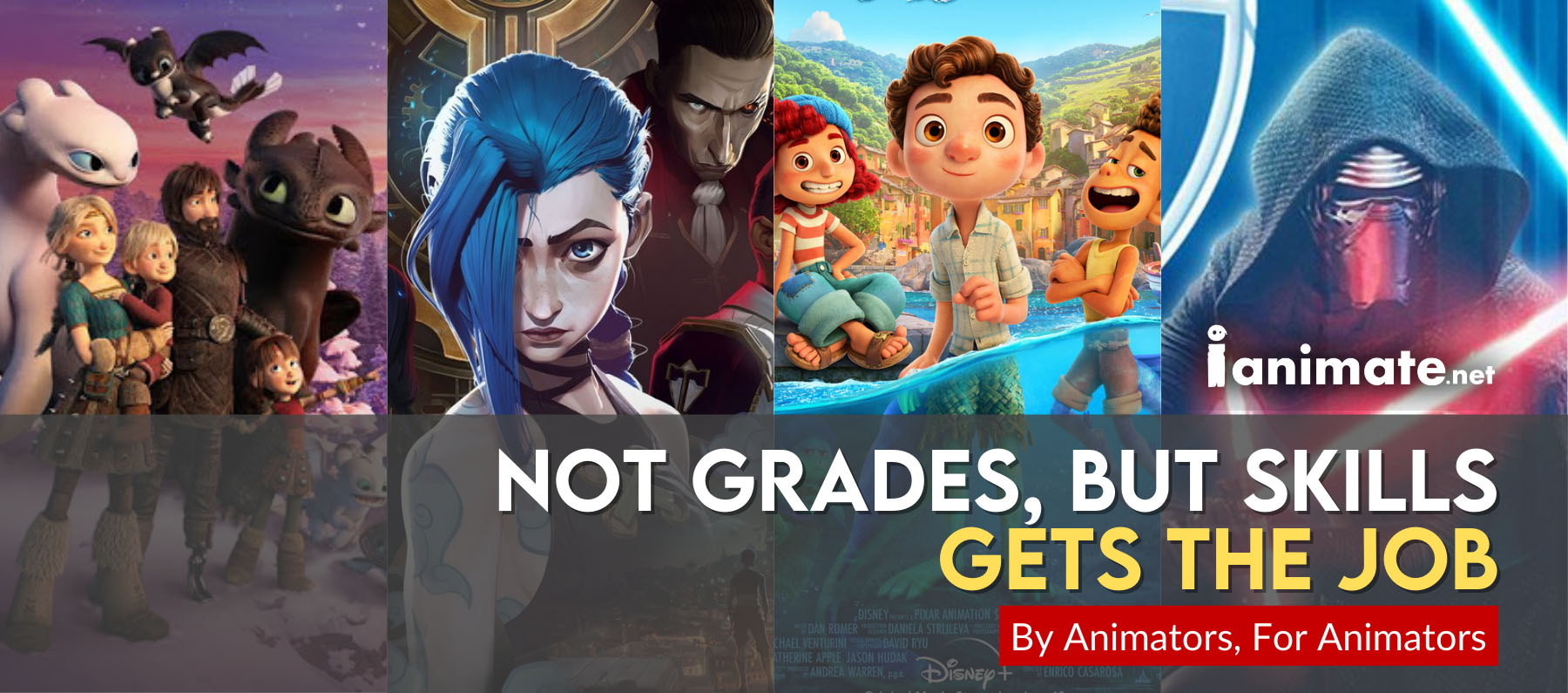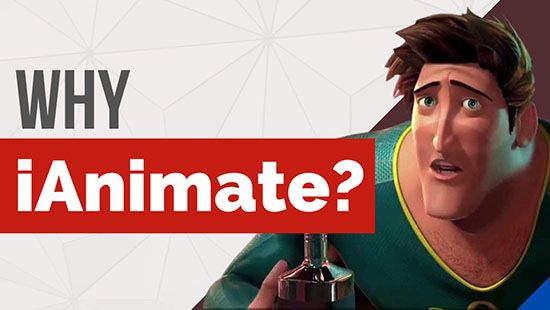Animation Career Path to be a Pro Animator
It's essential to master the fundamentals and have the right skills to start your animation career and become a great animator. Here’s how to do it!
To have a successful animation career in the business, you must learn the foundations and gain the necessary abilities. In this article, we will assist you with some facts about your animation career, becoming an employable animator, and get you acquainted with the in-demand skills for starting a career in animation.

Animation Career Review for Beginners
Are you thinking of a career in animation after graduation or online animation training? If you want to jumpstart your animation career, check into the available roles and jobs in animation field. Then, pick the one you like, and get a feel for what it's like to work there.
First, you must have a strong ambition and enthusiasm to master new skills. Secondly, skills like acting, storytelling and software expertise like Maya are necessary.
Several online animation programs may help you pursue your animation career in the industry. We at iAnimate will accelerate your animation career and lead the way by assisting you in how to become an animator and become industry-ready. Our mentors and instructors are industry leaders and professionals with a combined experience of more than 20 years.
What do Animators Do - Starting your Animation Career
1. Drawing Skills
You should have a sketchbook if you want to be an animator. Furthermore, you should develop regular sketching practice, including ordinary sceneries, surroundings, or anything else that comes to mind.
It is necessary to concentrate on life drawing, motion drawing, and humans and animals. Then, all you have to do is sketch anything from any angle. You may also use software or tools to practice and improve your drawing abilities.
2. Photography Skills
Make an animation of an image to show the most of your photography talents (GIF). Then, take photographs and observe motions, angles, and effects. You may also record yourself to acquire ideas for motions, gestures, and facial expressions.
Additionally, digital brands like Adobe Photoshop may be used to study and practice photography.
3. Acting Skills
You should be doing more than merely moving the figure around when animating. Acting is a technique for making an audience weep or jump with joy as they react to the emotion and moment presented/played. As a result, the quality of your animation, particularly in cinema, determines your acting level.
The audience will only connect with a sincere and believable performance in any film or game. Even if your character is fictional, good acting skills ensure that it comes to life. As a result, an animator's acting abilities are crucial.
4. Observation Skills
It's critical to know what's going on around you. Observation is a crucial phase in the animation process. Take the time to do it and make it a part of your routine. Your scenarios will be more convincing, and the outcomes will occur quickly.
Allow the nature around you to be your source of inspiration, and you'll find that there's a photo to be found in any outdoor activity. Another essential factor is teamwork; most initiatives require you to interact with individuals who share your interests. That is why you must conduct a study and seek advice from others.
5. Technical Skills
It's no surprise that firms are searching for animation designers with the necessary technical expertise. Technical abilities vary depending on the style you want to concentrate on. You'll need to learn how to operate a camera and editing software if you're going to produce stop-motion animation. You'll also need to master the program to work with 3D.
It's always about the animator's ability to pick up a new tool, not the software. You'll be an excellent animator if you have the right skills, experience, and inspiration, not just the right equipment. As a result, by employing the most outstanding animation software, you may enhance your skills, discover new things, and put your ideas to use.
Getting ahead of the competition
Many people think about becoming an animator, but only a handful work for it. So, what exactly do you have to do? First, consistency is something you should instill in yourself. You must examine your attitude and life objectives. Getting stranded is not and should never be an option.
Another crucial consideration is to become acquainted with current animation industry news and trends. Finally, you must stay up to the future of animation technology and be relevant. And the best way to do that is to put yourself in a similar environment. With iAnimate, you’ll find like-minded people, mentors, and perfect learning opportunities.
How can iAnimate Help you?
iAnimate offers a comprehensive range of workshops to accelerate your animation career, putting you in direct contact with seasoned animators from the industry's biggest and most excellent firms. Our training is mainly designed to address the problem or areas that even skilled animators face regularly.
Conclusion
In several areas, the animation may lead to lucrative work prospects. However, there are several criteria for animators must use both the artistic right and analytical left sides of their minds to bring their creative ideas to life.
As you study and practice the abilities of drawing, photography, and acting, you will undoubtedly enhance your basics. Animators should also have a keen eye for detail and a willingness to refine their perception of form and space over time.
So, if you want to have a successful journey, you will need to know where to start and who to learn from. While we have covered some animation career information and the most important aspects of being an animator, everyone's journey is different. So, you can get in touch with us and tell us how we can help your animation career.
Artilce by Richard Arroyo & iAnimate Team





